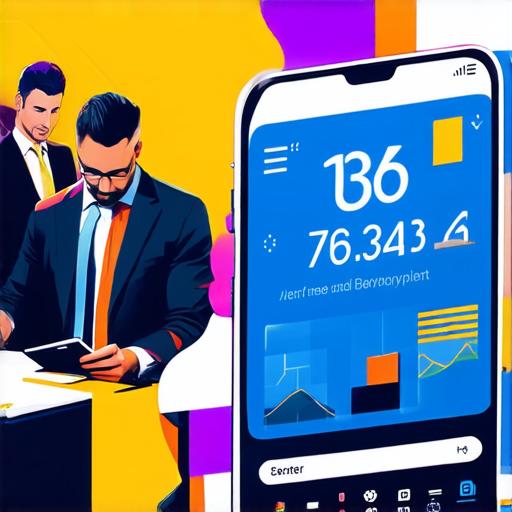Should we develop a mobile app?
The world is becoming increasingly mobile, and with it comes the opportunity to reach customers through their smartphones and tablets. For app developers, this presents both a challenge and an opportunity: should you develop a mobile app, and if so, what are the key factors to consider? In this guide, we’ll explore the pros and cons of developing a mobile app, and provide you with the information you need to make an informed decision.
The Pros of Developing a Mobile App
1. Increased Engagement
Mobile apps have been shown to increase engagement with customers. They allow for real-time communication and interaction, which can lead to more meaningful relationships between customers and your brand. By providing a personalized experience that is tailored to the individual’s needs and preferences, you can build stronger customer loyalty and drive repeat business.
2. Greater Reach
With billions of smartphones in use around the world, developing a mobile app gives you access to a vast potential audience. This means that even if your target market is relatively small, there’s still a chance that your app could reach millions of people.
3. Improved Analytics
Mobile apps offer a wealth of data and analytics that can help you better understand your customers and their behavior. By tracking usage patterns and collecting feedback from users, you can make informed decisions about how to improve your app and increase its effectiveness.
4. Competitive Advantage
Developing a mobile app can give your business a competitive advantage over your rivals who do not have one. In today’s marketplace, customers expect businesses to be accessible through their smartphones, and having a mobile app can help you stand out from the crowd.
The Cons of Developing a Mobile App
1. High Cost
Developing a mobile app can be expensive, especially if you hire a professional development team. The cost of developing an app depends on various factors, including the complexity of the app, the platform(s) it will run on, and the development team’s experience.
2. Limited Reach
While the potential reach of a mobile app is vast, not all smartphones have access to the internet or your app. This means that you may be limiting your reach to only those who have the necessary technology and connectivity.
3. Maintenance Costs
Maintaining a mobile app can be expensive. It requires regular updates, bug fixes, and improvements to keep up with changing technology and customer needs. Depending on the complexity of the app, maintenance costs can add up quickly.
4. Security Risks
Mobile apps can be vulnerable to security risks, including data breaches, hacking, and malware attacks. This means that you’ll need to invest in robust security measures to protect your customers’ data and ensure that your app is secure.
Case Studies: Successful Mobile Apps
1. Uber
Uber is a prime example of the power of a mobile app. The ride-hailing service has disrupted the transportation industry and transformed the way people travel. By providing a personalized experience that is tailored to individual needs, Uber has built a loyal customer base and expanded its reach into new markets.
2. Spotify
Spotify is another example of a successful mobile app. The music streaming service has revolutionized the way people listen to music and has become an essential tool for music lovers around the world. By providing a vast library of music and personalized recommendations, Spotify has built a loyal customer base and expanded its reach into new markets.
3. Instagram
Instagram is a popular social media platform that has transformed the way people share photos and videos. The app’s simple, user-friendly interface and powerful features have made it one of the most popular apps in the world. By providing a personalized experience that is tailored to individual needs and preferences, Instagram has built a loyal customer base and expanded its reach into new markets.
4. Zomato
Zomato is a food delivery app that has transformed the way people eat out. The app provides users with menus and reviews of local restaurants, making it easy to find and order food from their favorite places. By providing a personalized experience that is tailored to individual needs and preferences, Zomato has built a loyal customer base and expanded its reach into new markets.
Key Factors to Consider When Developing a Mobile App
1. Target Audience
Before developing a mobile app, it’s essential to understand your target audience and their needs and preferences. This will help you create an app that resonates with them and provides value to their lives.
2. Business Objectives
It’s important to define clear business objectives for your mobile app. This includes identifying the goals of the app, such as increasing sales or engagement, and measuring its success against these objectives.
3. Budget and Timeline

Developing a mobile app can be expensive, so it’s essential to have a clear budget and timeline in place. This will help you manage your expectations and ensure that the project stays on track.
4. Platform and Technology
The choice of platform and technology will depend on various factors, including the complexity of the app, the target audience, and the business objectives. It’s essential to choose a platform and technology that align with these factors and provide the necessary functionality and scalability for your app.
5. Security and Privacy
Security and privacy are critical considerations when developing a mobile app. It’s essential to implement robust security measures to protect your customers’ data and ensure that their information is secure.
FAQs
1. What is the best platform for developing a mobile app?
The choice of platform will depend on various factors, including the complexity of the app, the target audience, and the business objectives. The most popular platforms are iOS and Android, but there are other options available as well.
2. How much does it cost to develop a mobile app?
The cost of developing a mobile app can vary widely depending on various factors, including the complexity of the app, the platform(s) it will run on, and the development team’s experience. On average, the cost of developing a mobile app ranges from $10,000 to $50,000.
3. How long does it take to develop a mobile app?
The time it takes to develop a mobile app will depend on various factors, including the complexity of the app, the platform(s) it will run on, and the development team’s experience. On average, the development process for a mobile app can take anywhere from 3-6 months.
4. What is the best way to market a mobile app?
The best way to market a mobile app will depend on various factors, including the target audience and the business objectives. Some effective marketing strategies include social media advertising, influencer marketing, and content marketing.
Summary
Developing a mobile app can be an excellent way to provide value to your customers and grow your business. However, it’s essential to carefully consider the key factors that will determine the success of the app and choose a platform and technology that align with these factors. By following these steps and investing in robust security measures, you can create a mobile app that resonates with your target audience and provides value to their lives.
